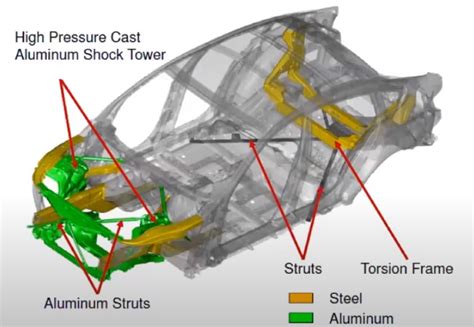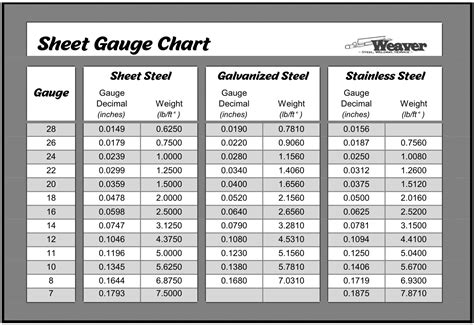body panel sheet metal thickness One of the first steps in auto body repair is choosing the right thickness of your mild steel sheet. The thickness you choose will largely depend on the area of the car you’re repairing. For most standard vehicles, a 20-gauge sheet will suffice .
Elevate your architectural projects with our Pergola Brackets for 4x4, 6x6, or 8x8 Posts — a premium range of robust, high-quality brackets designed to seamlessly support and enhance your timber frame structures.
0 · thickness of car sheet metal
1 · thickness of 18ga sheet metal
2 · standard sheet metal thickness
3 · standard automotive metal thickness
4 · sheet metal vs body panels
5 · how thick is sheet metal
6 · body panel gauge vs sheet metal
7 · 18 gauge metal body panel
WONDER WOMAN Tin Box Company 3-D Metal Lunch Box D.C COMICS Super Hero. Blue Sky Picks (328) 100% positive; Seller's other items Seller's other items; Contact seller; US $9.95. Condition: Used Used. Buy It Now. WONDER WOMAN Tin Box Company 3-D Metal Lunch Box D.C COMICS Super Hero. Sign in to check out. Check out as guest.Only 4 left in stock - order soon. Help others learn more about this product by uploading a video! Looking for specific info?
Sheet metal thickness is vital for vehicle durability. The standard measurement for this thickness is “gauge,” with a higher gauge number indicating a thinner piece of metal. The gauge system is often used in conjunction with . If you have a set of calipers you can measure the thickness of the existing metal and then order what you need. Here's some of the common gauges and corresponding .
What thickness or gauge is standard automotive sheetmetal on American vehicles, such as a door skin or fender skin. I'm practicing up on my Mig and am trying to determine . If you are looking for good sheetmetal for forming body panels, 19 ga. AKDQ is the type favored by many pros. The AKDQ is short for "aluminum killed, draw quality". Different parts of a vehicle have distinct requirements when it comes to sheet metal thickness. Body panels, for example, may require thinner sheets for aesthetics and weight considerations, while the chassis demands .
One of the first steps in auto body repair is choosing the right thickness of your mild steel sheet. The thickness you choose will largely depend on the area of the car you’re repairing. For most standard vehicles, a 20-gauge sheet will suffice . "Around" .040", remember the panel may not be the exact thickness everywhere after stamping, check several spots. Just used some AMD stuff and it was all in the .040" or . The metal thickness on body panels is 20-22 guage. When repairing rust damage, the recommendation is to cut out all visible rust plus 3 inches from the edge of the rust. Your . Working on my 69 and 70 Ghia I thought that it may be helpful to measure things and let others know what metal is used where on these cars. Using my Starrett sheet metal gauge I made some measurements to get the .
Starrett makes a ring gage that is designed to measure metal thicknesses. It has over a dozen slots on the ends that slide onto the metal to determine the correct metal gauge. . Sheet metal thickness is vital for vehicle durability. The standard measurement for this thickness is “gauge,” with a higher gauge number indicating a thinner piece of metal. The gauge system is often used in conjunction with millimeters to specify the thickness of metal.
If you have a set of calipers you can measure the thickness of the existing metal and then order what you need. Here's some of the common gauges and corresponding thickness of sheet steel: GA. Thickness. What thickness or gauge is standard automotive sheetmetal on American vehicles, such as a door skin or fender skin. I'm practicing up on my Mig and am trying to determine settings, using ER70-6S and C25. If you are looking for good sheetmetal for forming body panels, 19 ga. AKDQ is the type favored by many pros. The AKDQ is short for "aluminum killed, draw quality".
Different parts of a vehicle have distinct requirements when it comes to sheet metal thickness. Body panels, for example, may require thinner sheets for aesthetics and weight considerations, while the chassis demands thicker sheets for structural strength.One of the first steps in auto body repair is choosing the right thickness of your mild steel sheet. The thickness you choose will largely depend on the area of the car you’re repairing. For most standard vehicles, a 20-gauge sheet will suffice for body panels, while heavier duty areas like floor pans might require 18-gauge.

"Around" .040", remember the panel may not be the exact thickness everywhere after stamping, check several spots. Just used some AMD stuff and it was all in the .040" or 18ga. area, pretty nice stuff too. The metal thickness on body panels is 20-22 guage. When repairing rust damage, the recommendation is to cut out all visible rust plus 3 inches from the edge of the rust. Your patch panel should fit into the cutout area. Working on my 69 and 70 Ghia I thought that it may be helpful to measure things and let others know what metal is used where on these cars. Using my Starrett sheet metal gauge I made some measurements to get the thicknesses used on the Chassis. Note, the thinner the metal, the HIGHER the number.
thickness of car sheet metal
Starrett makes a ring gage that is designed to measure metal thicknesses. It has over a dozen slots on the ends that slide onto the metal to determine the correct metal gauge. If I find a site that has them for sale, I'll post back. Sheet metal thickness is vital for vehicle durability. The standard measurement for this thickness is “gauge,” with a higher gauge number indicating a thinner piece of metal. The gauge system is often used in conjunction with millimeters to specify the thickness of metal.
akron explosion proof junction box
If you have a set of calipers you can measure the thickness of the existing metal and then order what you need. Here's some of the common gauges and corresponding thickness of sheet steel: GA. Thickness. What thickness or gauge is standard automotive sheetmetal on American vehicles, such as a door skin or fender skin. I'm practicing up on my Mig and am trying to determine settings, using ER70-6S and C25.
If you are looking for good sheetmetal for forming body panels, 19 ga. AKDQ is the type favored by many pros. The AKDQ is short for "aluminum killed, draw quality". Different parts of a vehicle have distinct requirements when it comes to sheet metal thickness. Body panels, for example, may require thinner sheets for aesthetics and weight considerations, while the chassis demands thicker sheets for structural strength.One of the first steps in auto body repair is choosing the right thickness of your mild steel sheet. The thickness you choose will largely depend on the area of the car you’re repairing. For most standard vehicles, a 20-gauge sheet will suffice for body panels, while heavier duty areas like floor pans might require 18-gauge. "Around" .040", remember the panel may not be the exact thickness everywhere after stamping, check several spots. Just used some AMD stuff and it was all in the .040" or 18ga. area, pretty nice stuff too.
The metal thickness on body panels is 20-22 guage. When repairing rust damage, the recommendation is to cut out all visible rust plus 3 inches from the edge of the rust. Your patch panel should fit into the cutout area. Working on my 69 and 70 Ghia I thought that it may be helpful to measure things and let others know what metal is used where on these cars. Using my Starrett sheet metal gauge I made some measurements to get the thicknesses used on the Chassis. Note, the thinner the metal, the HIGHER the number.
thickness of 18ga sheet metal

standard sheet metal thickness
Secure Hold: Rubber stop secures door, reduces rattles, and minimizes slam and vibration noise. Easy Release: Roller-action clamp holds doors securely but .
body panel sheet metal thickness|sheet metal vs body panels